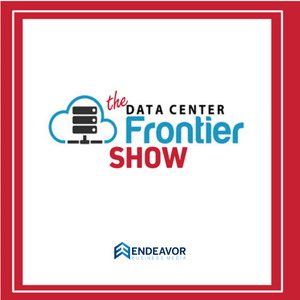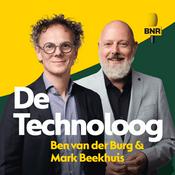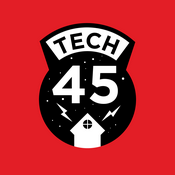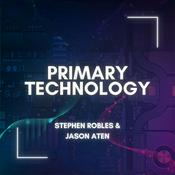191 afleveringen
- In the latest episode of The DCF Show Podcast, Data Center Frontier founder Rich Miller joins present DCF Editor in Chief Matt Vincent and Senior Editor David Chernicoff to examine where the data center industry stands as AI infrastructure moves from announcement to execution.
Miller also discusses his new Data Center Richness podcast and Substack project, which explores how data center professionals consume content and learn about the rapidly evolving industry. With information overload now a reality, Miller’s goal is to distill the most important signals shaping infrastructure decisions.
The conversation then turns to what defines 2026 for data centers: execution. After a year filled with megaproject announcements, the industry now faces the harder task of actually delivering campuses at AI scale—often under severe power constraints.
With utilities struggling to keep pace, on-site generation is shifting from temporary solution to long-term strategy, as developers seek reliable ways to power projects while easing community concerns about grid impacts.
Public resistance has also become a major factor. Miller notes that community opposition is now delaying or halting billions of dollars in projects, forcing operators to rethink how they engage with local stakeholders. Issues like power pricing and water usage are increasingly central to project approval.
On the technology front, Nvidia’s roadmap continues to reshape infrastructure planning, with rack densities rising sharply, liquid cooling becoming standard, and new power distribution models emerging to support AI factories. At the same time, Miller expects the market to stratify, with some operators specializing in AI factories while others serve cloud and enterprise demand.
The discussion also touches on nuclear power’s future role, with data centers positioning themselves as anchor customers, though meaningful SMR deployment remains years away.
Ultimately, Miller argues that the industry is moving faster than ever, and 2026 will reveal how well today’s massive investments translate into real deployments.
As he concludes: the next phase belongs to those who can deliver. Nomads at the Frontier: PTC 2026 Signals an Execution Phase for Digital Infrastructure
10-2-2026 | 32 Min.In this installment of Nomads at the Frontier, Data Center Frontier Editor-in-Chief Matt Vincent checks in with Nomad Futurist founders Nabeel Mahmood and Phillip Koblence for on-the-ground reflections from PTC 2026 in Hawaii, and a clear signal that the digital infrastructure market is shifting from hype to delivery.
Mahmood says PTC 2026 reaffirmed the move toward integrated digital infrastructure, with attendance continuing to grow and conversations increasingly translating into real progress. But the defining theme across AI, investment, and deployments was power. As Koblence puts it, “all of those questions are power”—and unlike prior years, the tone has moved from speculative site talk to “show me the money, show me the power,” with real timelines and secured capacity.
The episode digs into the industry’s evolving stance on behind-the-meter generation, which is increasingly treated as the most viable medium-term path to getting online as grid bureaucracy and interconnection delays become the “long pole in the tent.” The discussion also tackles the sustainability tension in that shift: why the industry often kicks the can down the road, what alternative options (fuel cells, hydrogen) may offer, and why nuclear timelines don’t solve the near-term gap.
Mahmood and Koblence also emphasize that the buildout isn’t just a power story; it’s a people and community story. Workforce shortages remain structural and long-lived, and community acceptance is now central to the industry’s “license to build.” Nomad Futurist’s mission, they argue, is becoming a bridge between digital infrastructure and the public, demystifying what the industry is, why it matters, and how the next generation can enter it.
Finally, the conversation pressures-tests the AI boom: Mahmood predicts the “mega-scale AI factory” bubble will burst within three to five years, with growth shifting toward inferencing closer to users, but he still expects the sector to normalize into sustained double-digit expansion. And on Nvidia’s roadmap, both founders call for realism: megawatt racks may be coming, but as Koblence notes, “there are zero facilities” today that can support a 1–1.5 MW rack at scale.Google Cloud on Operationalizing AI: Why Data Infrastructure Matters More Than Models
03-2-2026 | 32 Min.In the latest episode of the Data Center Frontier Show Podcast, Editor in Chief Matt Vincent speaks with Sailesh Krishnamurthy, VP of Engineering for Databases at Google Cloud, about the real challenge facing enterprise AI: connecting powerful models to real-world operational data.
While large language models continue to advance rapidly, many organizations still struggle to combine unstructured data (i.e. documents, images, and logs) with structured operational systems like customer databases and transaction platforms. Krishnamurthy explains how vector search and hybrid database approaches are helping bridge this gap, allowing enterprises to query structured and unstructured data together without creating new silos.
The conversation highlights a growing shift in mindset: modern data teams must think more like search engineers, optimizing for relevance and usefulness rather than simply exact database results. At the same time, governance and trust are becoming foundational requirements, ensuring AI systems access accurate data while respecting strict security controls.
Operating at Google scale also reinforces the need for reliability, low latency, and correctness, pushing infrastructure toward unified storage layers rather than fragmented systems that add complexity and delay.
Looking toward 2026, Krishnamurthy argues the top priority for CIOs and data leaders is organizing and governing data effectively, because AI systems are only as strong as the data foundations supporting them.
The takeaway: AI success depends not just on smarter models, but on smarter data infrastructure.
🎧 Listen to the full episode to explore how enterprises can operationalize AI at scale.- The data center industry is changing faster than ever. Artificial intelligence, cloud expansion, and high-density workloads are driving record-breaking energy and cooling demands. But behind every megawatt of compute capacity lies an equally critical resource: water.
As data halls evolve from static infrastructure to dynamic, service-driven ecosystems, cooling has emerged as one of the most powerful levers for efficiency, reliability, and sustainability. In this episode, Ecolab explores how Cooling as a Service (CaaS) is transforming data center operations, shifting cooling from a capital expense to a measurable, performance-based service that drives uptime, reliability, and environmental stewardship.
Tune in to hear experts discuss how data centers can future-proof their operations through a smarter, service-oriented approach to thermal management. From proactive analytics to commissioning best practices, this conversation dives into the technologies, partnerships, and business models redefining how cooling is managed and measured across the world’s most advanced digital infrastructure. - Applied Digital CEO Wes Cummins joins Data Center Frontier Editor-in-Chief Matt Vincent to break down what it takes to build AI data centers that can keep pace with Nvidia-era infrastructure demands and actually deliver on schedule.
Cummins explains Applied Digital’s “maximum flexibility” design philosophy, including higher-voltage delivery, mixed density options, and even more floor space to future-proof facilities as power and cooling requirements evolve.
The conversation digs into the execution reality behind the AI boom: long-lead power gear, utility timelines, and the tight MEP supply chain that will cause many projects to slip in 2026–2027.
Cummins outlines how Applied Digital locked in key components 18–24 months ago and scaled from a single 100 MW “field of dreams” building to roughly 700 MW under construction, using fourth-generation designs and extensive off-site MEP assembly—“LEGO brick” skids—to boost speed and reduce on-site labor risk.
On cooling, Cummins pulls back the curtain on operating direct-to-chip liquid cooling at scale in Ellendale, North Dakota, including the extra redundancy layers—pumps, chillers, dual loops, and thermal storage—required to protect GPUs and hit five-nines reliability.
He also discusses aligning infrastructure with Nvidia’s roadmap (from 415V toward 800V and eventually DC), the customer demand surge pushing capacity planning into 2028, and partnerships with ABB and Corintis aimed at next-gen power distribution and liquid cooling performance.
Meer Technologie podcasts
Trending Technologie -podcasts
Over The Data Center Frontier Show
Welcome to The Data Center Frontier Show podcast, telling the story of the data center industry and its future. Our podcast is hosted by the editors of Data Center Frontier, who are your guide to the ongoing digital transformation, explaining how next-generation technologies are changing our world, and the critical role the data center industry plays in creating this extraordinary future.
Podcast websiteLuister naar The Data Center Frontier Show, Acquired en vele andere podcasts van over de hele wereld met de radio.net-app

Ontvang de gratis radio.net app
- Zenders en podcasts om te bookmarken
- Streamen via Wi-Fi of Bluetooth
- Ondersteunt Carplay & Android Auto
- Veel andere app-functies
Ontvang de gratis radio.net app
- Zenders en podcasts om te bookmarken
- Streamen via Wi-Fi of Bluetooth
- Ondersteunt Carplay & Android Auto
- Veel andere app-functies


The Data Center Frontier Show
Scan de code,
download de app,
luisteren.
download de app,
luisteren.








































